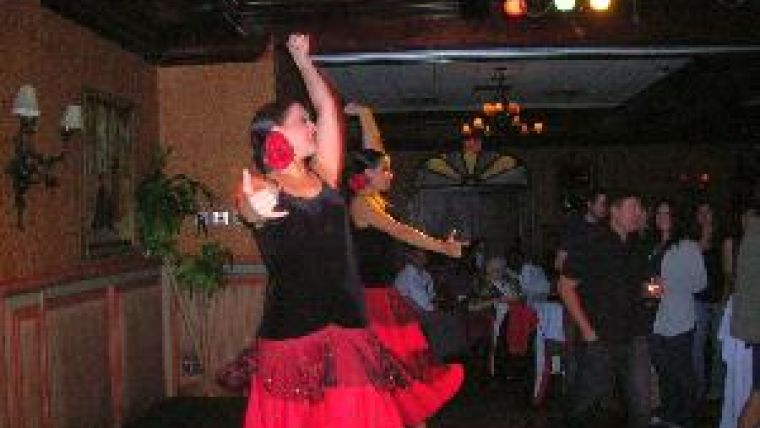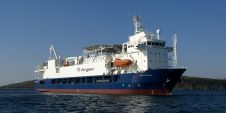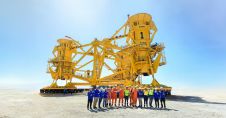US Hydro 2011
The Hydrographic Society of America organised a perfect thirteenth edition of the US Hydro conference in the Marriott Waterside Hotel in Tampa, Florida, USA, between 25 and 28 April , 2011. Hundreds of delegates attended the ten technical sessions, a poster session with fourteen posters, an exhibit with 61 exhibitors, nine workshops, a student outreach programme, and an accompanying persons programme. Attendants from as far away as Taiwan, Nigeria, and Brazil illustrated the appeal of the programme and the informal atmosphere.
The Esri-sponsored conference dinner on 27 April took place in the famous Columbia Restaurant in the authentic Ybor district. Columbia is proud of its Spanish roots, as shown by the decoration, the food, the drinks, and the entertainment. Everyone enjoyed the Flamenco dancers, it was impossible to avoid their loud clapping and stamping.
In its Keynote Address, Dr. Larry Mayer spoke about the hydrographic aspects of the Deep Water Horizon oil spill disaster. Flexible use of staff, equipment and software was the key to the detection and location of oil and gas plumes. Several team members showed true excellence in their involvement, for the benefit of all the responders to the disasters and ultimately the environment and general public of the Gulf of Mexico. Dr. Mayer pointed out the importance of advanced visualisation techniques, especially when discussing the results in groups with mixed backgrounds.
During the conference, there was a lot of attention for the advantages of ellipsoidally referenced surveying. The VDatum project of NOAA has made this approach possible for large parts of the North American shoreline. The main advantage is that cumbersome water level reductions can be avoided while surveying, processing, and archiving data. It is expected that surveying with respect to the ellipsoid will be operational within months.
Another topic that received a lot of attention was the lack of hydrographic surveys and water level monitoring in Alaska. Global warming is expected to make the seas around Alaska more accessible over the next decades, which gives the hydrographic community the responsibility to invest in accurate and modern hydrographic products.
A full technical session was dedicated to the Port of Norfolk project. The development of High-Resolution Navigational Products is an opportunity to improve safety and efficiency for this American main port. An enthusiastic team from NOAA is developing products and methods that will be an example for port authorities around the world.
There was a well attended workshop organised by the International Discussion Group on Uncertainty Management in Hydrography. This group convenes yearly at either USHydro or the Canadian Hydrographic Conference. The workshop started directly after the presentation by Dr. Brian Calder on bathymetric estimations using grids with variable resolution. This will allow for a better application of procedures like CUBE in areas with different types of bathymetric variation. Besides discussing this paper, the group spoke about the uncertainty associated with ellipsoidally referenced surveying, and about the activities of the IHO Data Quality Working Group. The questionnaire that the working group sent out recently to mariners worldwide was shown in great detail by the convener, Dr. Dave Wells.
After a short closing ceremony, everyone left with memories of the most sunny conference that THSOA ever organised. It is expected that the presentations and conference proceedings will become available online at the website below shortly after the end of the conference.

Value staying current with hydrography?
Stay on the map with our expertly curated newsletters.
We provide educational insights, industry updates, and inspiring stories from the world of hydrography to help you learn, grow, and navigate your field with confidence. Don't miss out - subscribe today and ensure you're always informed, educated, and inspired by the latest in hydrographic technology and research.
Choose your newsletter(s)
























